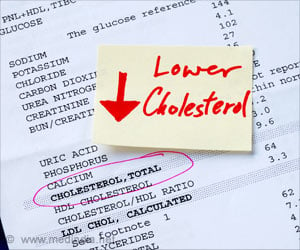Recently, the guidelines for acceptable cholesterol levels were lowered causing widespread concern in the medical community.
Experts quoted in the British Medical Journal stated that the new guidelines suggest that millions of low-risk patients should be put on high-dose statins. Researchers say they are not ready to unleash high-dose statins on the public because there is too little research on outcomes."Statins are cholesterol-lowering wonder drugs that make sense for those who have already had heart disease," states Dr. Paul Zickler of DoctorSolve online pharmacy services. "But the concern with lower cholesterol level guidelines is that they significantly widen the group of people who are candidates for statins. Many patients with slightly elevated cholesterol levels may be otherwise healthy. For these people, improving diet, increasing exercise and stopping smoking can have the same effect as taking statins. And it's safer and less expensive."
Statins have been around since 1987, and there is no doubt that they can produce health benefits for many people. But the long-term effects of statins have been very poorly studied. "Prescribing a drug to a healthy person needlessly puts them at risk for a drug's side effects," says Zickler. In the case of statins, there are two very important side effects, although they are extremely rare: a muscle-wasting condition and liver damage.
This isn't the first time that cholesterol level guidelines have been lowered. Selling Sickness, written by Ray Moynihan and Alan Cassels, states, "according to the official US National Institutes of Health's cholesterol guidelines from the 1990s, thirteen million Americans might have warranted treatment with statins. In 2001, a new panel of experts rewrote those guidelines, and effectively raised that number to 36 million."
In 2004, another new panel of experts updated those guidelines again, bringing the number to 40 million Americans eligible for statins. In both of the latter cases, members of the panels also served as paid speakers, consultants or researchers to the world's major drug companies. So, who are the lower cholesterol guidelines really benefiting?
For patients who are in otherwise good health, Dr. Zickler advises that they "ask for other suggestions on how to lower your cholesterol first through diet and exercise. You can also look at a tried and true product called Niacin (vitamin B3), available at your drugstore. Niacin can raise the levels of good cholesterol by as much as 30 percent. One of the side effects of Niacin is flushing, so look for long-acting or flush-free formulations."
Advertisement
SRM/L











